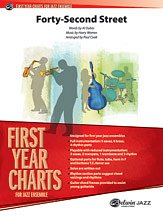Content
Der sterbende Jesus
- Chorus: “Er kommt zu bluten auf Golgatha”
- Recitative (Johann) with Chorus: “Wohin verfolgt die Unruh”
- Aria (Johann): “So steigt nach Ungewittern”
- Recitative—Arioso (Maria, Jesus): “Schon steht das Kreuz auf Golgatha!—Meine Mutter, sieh, dies ist nun dein Sohn” 5. Chorale: “Preis und Dank!”
- Recitative (Johann): “Woher die düst’re Mitternacht in Gottes Schrecken”
- Recitative (Jesus): “Mein Gott, mein Gott! Warum verlassen auch von dir”
- Chorale—Chorus: “Fallet nieder und dankt!—Der Vorhang im Tempel”
- Recitative with Arioso (Maria): “Wohin? Wo flieh’ ich hin?”
- Aria (Maria): “Wenn dann einst der Tränen”
- Recitative (Maria, Johann): “Hier saß er oft”
- Aria (Maria): “Weh mir Armen!”
- Recitative (Johann): “Lass ab! Dein Schmerz zerreißt”
- Chorus: “Selig sind von nun an alle”
- Recitative (Johann): “Einst schlief er sanft in stiller Nacht”
- Chorus—Fugue: “Doch der Sieger ist schon nah—Jesus Christus geht voran”
- Recitative—Aria (Joseph): “Es ist gescheh’n!—Weine königliche Blume”
- Recitative (Maria, Johann): “O lasst mich sie noch einmal seh’n!”
- Chorale: “Zwischen Hoffnung, Angst und Beben”
- Recitative (Joseph): “Hemmt nun die Flut der Tränen!”
- Duet (John, Joseph): “Tief anbetend hier im Staube”
- Recitative (Johann): “So bebet nicht!”
- Final Chorus: “Frohlockt! Der Fromme steht”


